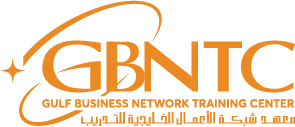For anyone involved in the installation and maintenance of climate control systems, understanding the necessity of regulations is key. Engaging in licensed work ensures that technicians follow established standards, ultimately promoting a secure environment for both workers and occupants. Adhering to these legal frameworks not only enhances operational integrity but also nurtures trust among customers and clients.
Incorporating regular safety checks is another fundamental aspect of maintaining high quality in system performance. These evaluations help identify potential hazards and inefficiencies before they escalate into major issues. By ensuring all installations comply with local statutes, professionals can provide peace of mind, knowing they contribute to a healthier living and working atmosphere.
Understanding Local HVAC Regulations and Compliance Requirements
Comprehending local regulations concerning climate control systems is crucial for homeowners and contractors alike. Adhering to these guidelines ensures that installations receive the necessary install approval from authorities, confirming that all work aligns with established standards. Moreover, compliance not only protects the occupants but serves as a testament to the quality of the installation.
Compliance mandates often require scheduled safety checks, which can prevent significant issues down the line. Properly licensed work guarantees that the system meets local law, ultimately securing warranty protection for the installed equipment. This can also enhance the resale value of a home, providing an attractive benefit for future owners aware of the system compliance history.
Navigating these regulations can seem daunting, but staying informed about the specific requirements in your locality promotes safe and reliable system operation. Regular updates from local authorities can help keep homeowners and contractors aligned with the latest rules and expectations.
By ensuring that all aspects of the installation process adhere to local guidelines, property owners can enjoy peace of mind knowing their systems are functioning safely and effectively. The rewards extend beyond safety to include improved energy efficiency and overall comfort within the living space.
Consequences of Ignoring HVAC Permits
Neglecting the necessary approvals for systems installation can lead to severe repercussions. Homeowners who forgo these legal requirements may face fines and other penalties, which can be financially burdensome. Additionally, property modifications performed without proper inspection could violate local law, creating long-term legal complications.
Join https://comfortmastersair.com/ today for loyalty rewards and regular promos.
A significant risk of bypassing required safety checks is compromised system compliance. Current systems may fail to meet established safety and performance standards, leading to hazardous conditions. Moreover, warranty protection may be void if installations do not adhere to local regulations, resulting in a lack of support for repairs and replacements down the line.
Furthermore, neglecting these processes can diminish the resale value of properties. Prospective buyers often seek reassurances that all installations are up to code and have passed required inspections. Buyers may hesitate to purchase homes that lack documented compliance, jeopardizing potential sales.
Overall, prioritizing installations that follow legal protocols not only ensures peace of mind during usage but also enhances marketability and financial investment in the long run.
How to Navigate the HVAC Permit Application Process
Securing the necessary documentation for your heating, ventilation, and air conditioning system is a crucial step that entails a clear understanding of local requirements and protocols. To begin, visit https://comfortmastersair.com/ for resources and guidance tailored to your area.
This process typically involves several stages to ensure compliance with local law and safety checks. Begin by familiarizing yourself with the specific regulations in your region, as they can vary significantly. Gathering the appropriate documentation is essential for a smooth installation.
- Research Local Regulations: Understand what is required in your municipality regarding installations, including permits and system compliance obligations.
- Gather Necessary Documents: Compile all documentation that may be required, such as installation plans, proof of licensed work, and prior inspection records.
- Application Submission: Fill out the application forms accurately to prevent delays. Double-check that all necessary paperwork is included.
- Pay Fees: Be prepared to pay any associated fees during the application process, as these vary by locale.
- Await Approval: The local authority will process your application, conducting proper inspection as necessary before granting install approval.
Adhering to the outlined steps not only ensures compliance but also enhances the resale value of your property. Failing to follow these guidelines could have severe consequences, making it essential to approach this task with diligence and care.
Common HVAC Code Violations and How to Avoid Them
Failure to adhere to local law can lead to serious complications for homeowners and contractors alike. Many common issues arise during installation and maintenance that can jeopardize the safety checks required for compliance. For detailed information on applicable regulations, consult this resource on HVAC codes and regulations.
Improper duct installation is a frequent violation, often resulting from unlicensed work or insufficient training. Using the wrong materials or neglecting to seal joints can reduce system efficiency and create safety hazards. To avoid these pitfalls, always hire licensed professionals and verify they possess the required approvals.
Inadequate refrigerant levels are another common issue, which can lead to system malfunction and excessive wear. Regular maintenance checks can identify pressure discrepancies early and ensure compliance with system specifications. This helps protect any warranty claims related to the unit.
Running electrical wiring incorrectly can cause serious dangers and may violate building codes. Ensure that all installation processes adhere strictly to local regulations to safeguard property and occupants. Engaging a certified electrician for these tasks is advisable.
Alterations to the ventilation system without proper permits can diminish property value and limit resale potential. Always secure the necessary permissions before making changes and keep documentation as proof of compliance.
Neglecting to conduct safety checks and inspections can lead to hazardous situations. It is crucial to prioritize these assessments, as they not only uphold safety standards but also protect against liability issues in the event of an incident.


Comments are closed